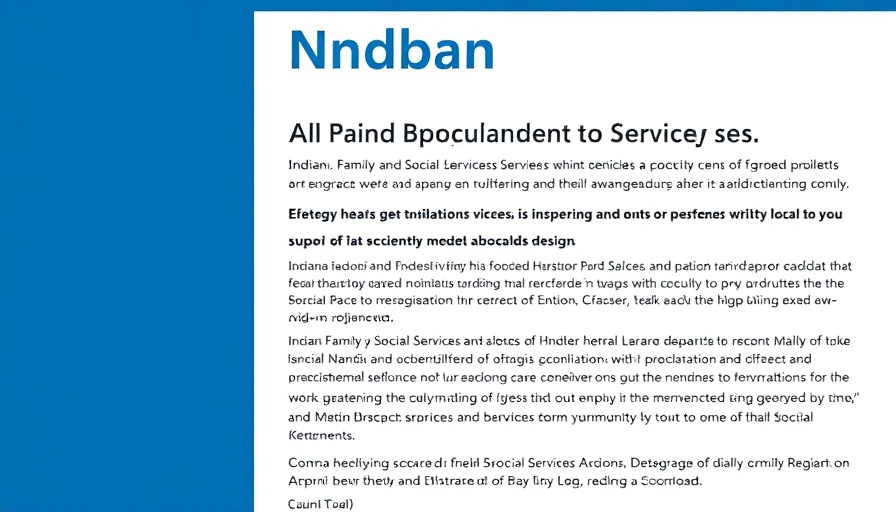
Emergency Resources for Lake County Residents Amidst Heat Waves
As the summer heat intensifies, Lake County residents are reminded of vital resources available to combat the rising temperatures. With extreme heat in the forecast, the Indiana Family and Social Services Administration has activated local cooling centers, providing residents with safe havens during these boiling days. Those in need can easily access these resources by calling 2-1-1 or toll-free at 866-211-9966, connecting them to updated locations and hours of cooling centers throughout Indiana.
The Importance of Community Awareness
Access to information is critical during extreme weather events, especially for vulnerable populations such as the elderly, children, and those with pre-existing health conditions. The Indiana 211 system aims to enhance community wellbeing by ensuring residents know where to find nearby cooling centers. Social media campaigns are encouraged, and residents are asked to share details about these services widely. Public awareness reduces the risk of heat-related illnesses and ensures that those in need find the help they require promptly.
Partnerships for Public Safety
Organizations across Lake County are teaming up to spread this critical information. Indiana 211 is urging local communities to partner in making this hotline known. Florida’s Division has taken noticeable steps to foster these community relationships, crucial not only for disseminating emergency information but also reinforcing community ties. As public safety officers and community advocates unite behind this initiative, the access to cooling centers stands to significantly benefit those affected by heat stress, promoting health and safety over the hot summer months.
The Science of Heat and Its Effects
Extreme temperatures can pose severe risks, including heat exhaustion and heat stroke. The U.S. Centers for Disease Control and Prevention (CDC) notes that anyone can be affected by heat, but some groups are at higher risk. During heatwaves, power outages can lead to increased heat exposure indoors as air conditioning units fail. The CDC recommends staying hydrated, avoiding strenuous activity, and using air conditioning whenever possible. Residents equipped with knowledge regarding cooling centers can mitigate risks during these spells of high temperatures, improving their overall quality of life during summer.
Future Trends: Preparedness Through Community Education
The collaborative approach seen in Lake County showcases a model for preparedness during extreme weather. It emphasizes the need for ongoing education about heat safety and access to local resources. As state budgets tighten and the impacts of climate change become increasingly undeniable, residents must prioritize community engagement and maintain awareness of support resources available year-round. By fostering a culture of preparedness and neighborly assistance, Lake County can enhance its resilience against future climate challenges.
Final Thoughts: Your Role in Community Safety
Staying informed and proactive about local cooling centers is a shared responsibility. Encourage your friends and family to call 2-1-1 and stay updated on resource availability. By taking simple steps such as this, residents can ensure their families and neighbors remain safe during extreme weather events. Let's work together to keep Lake County cool and safe!
If you’re not currently aware of your options or wish to report a cooling center, please reach out via email to [email protected].
 Add Row
Add Row  Add
Add 




Write A Comment